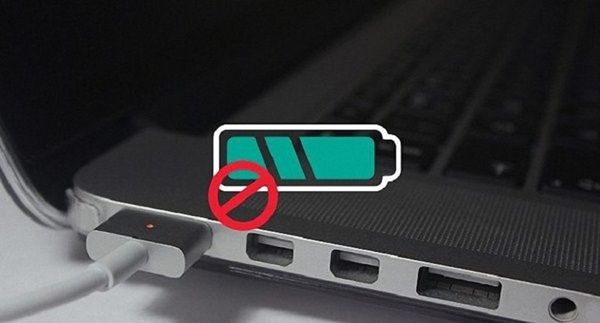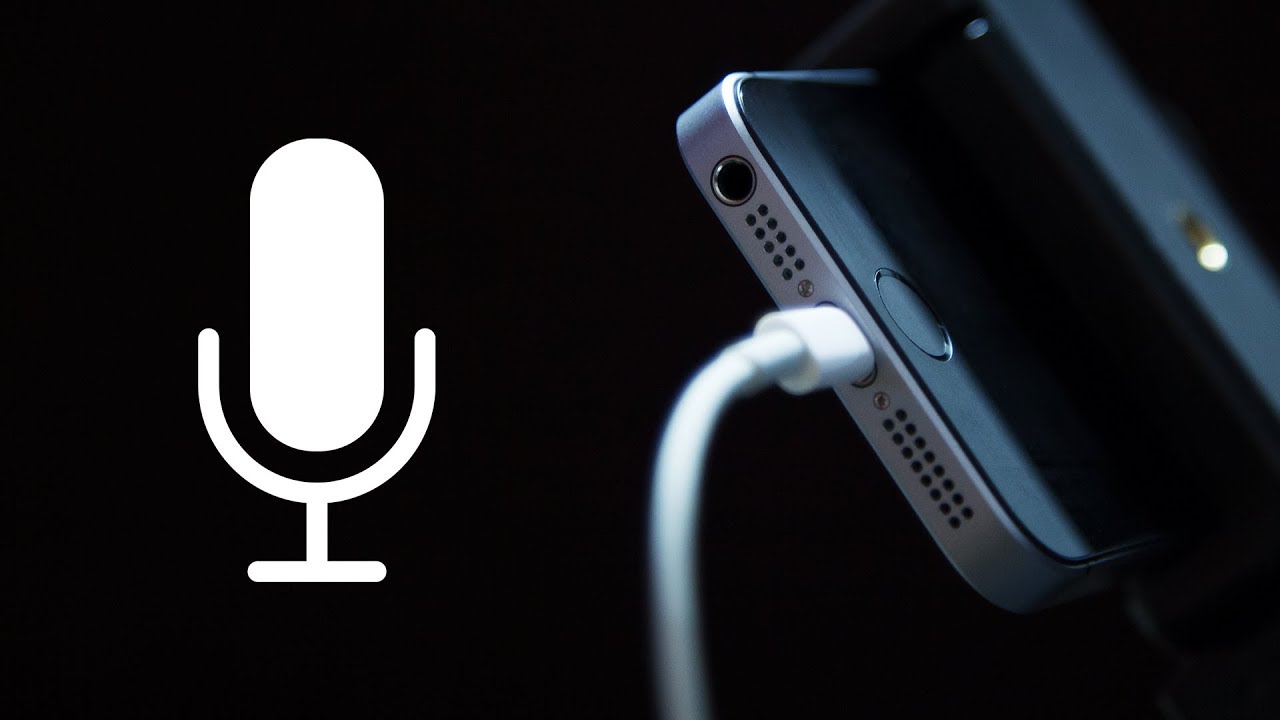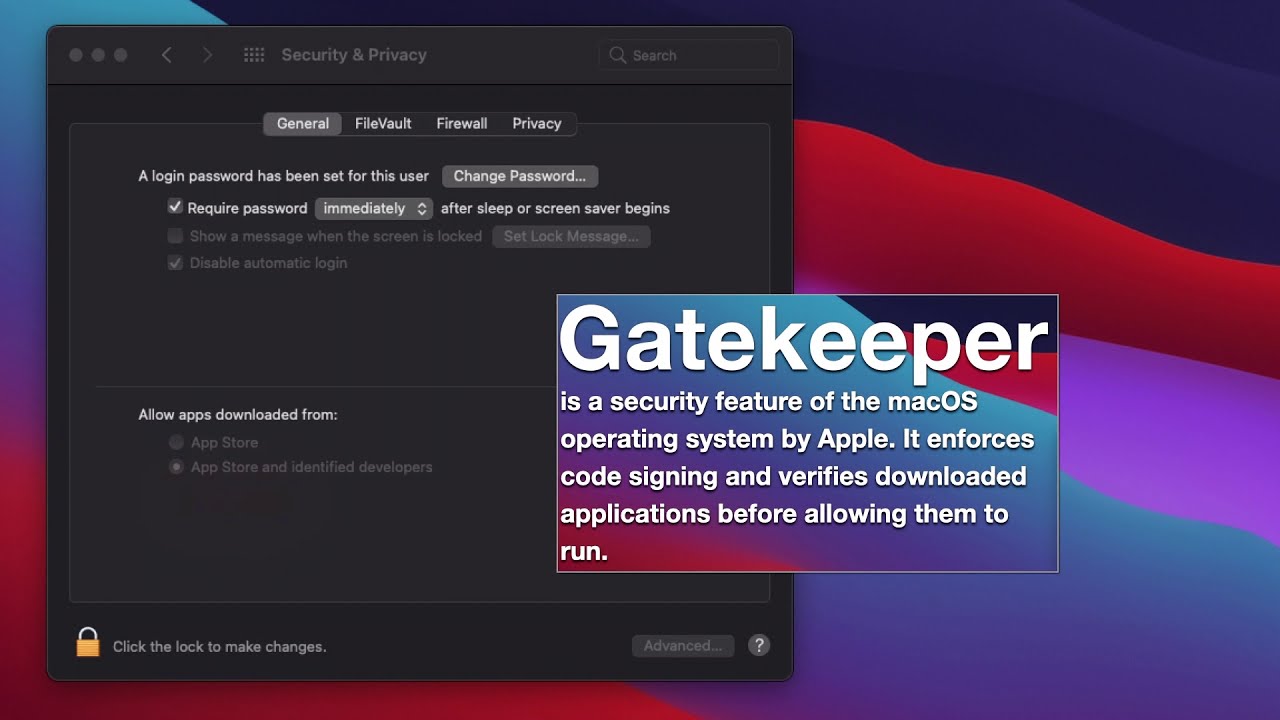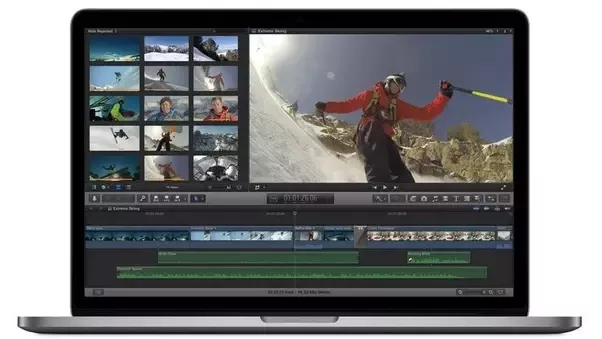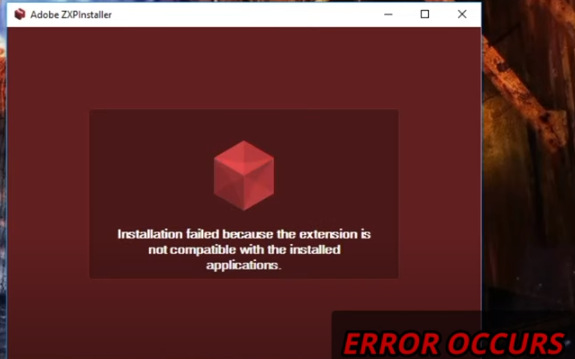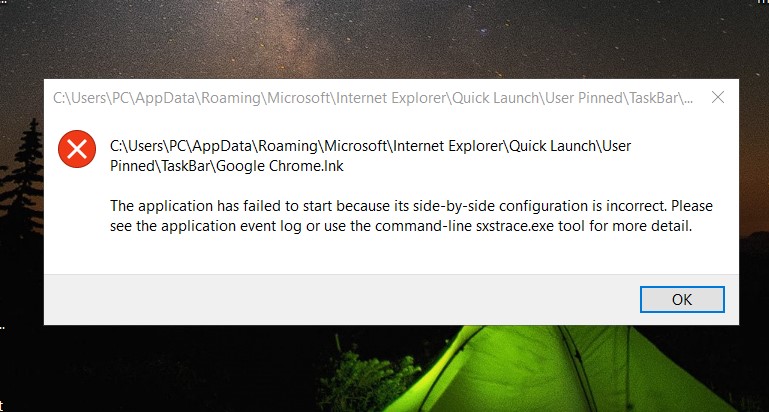How to upgrade RAM on MacBook Pro or MacBook Air. If your Mac shows signs of slowing down, upgrading RAM is a great solution. While replacing an old hard drive with a modern SSD is the most powerful hardware improvement ever, upgrading RAM on a Mac makes it possible to run multiple programs at once. However, how to upgrade RAM will vary depending on the model. This article will show you how to upgrade RAM on Mac, which models allow upgrading, and how to buy RAM.
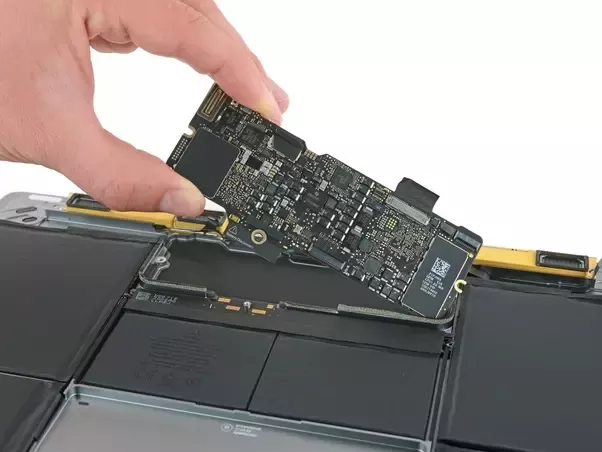
Table of Contents
Which Mac models can upgrade RAM?
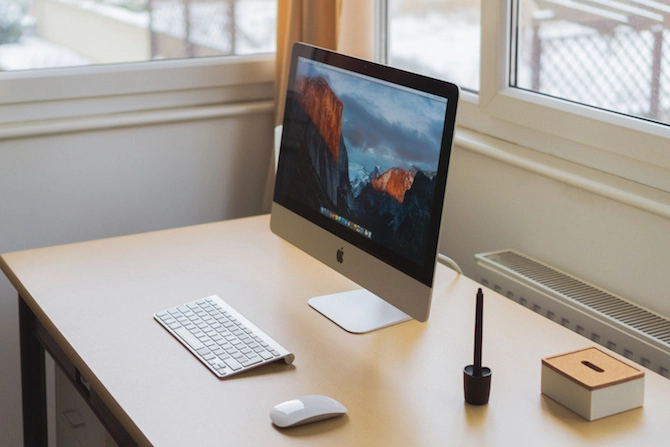
Unfortunately, most modern Macs do not allow users to upgrade the RAM.
Recent MacBook Pro and MacBook Air models produce motherboard-mounted RAM. Technically, users can upgrade the RAM of some newer iMacs, but the job is not simple. You should not perform a RAM upgrade on these machines unless you have experience with electronics and the machine is out of warranty.
Here is a list of Mac models that users can upgrade RAM:
- iMac (All but the following 21.5-inch models: Late 2012, Late 2013, Mid 2014, Late 2015, Retina 4K Late 2015, 2017, Retina 4K 2017 and Retina 4K 2019)
- Mac Pro (All Models)
- Mac Mini (model 2010-2012)
- MacBook (model 2008-2011)
- MacBook Pro 13″ (2009-2012)
- MacBook Pro 15″ (2008-2012)
- MacBook Pro 17″ (All Models)
If you have one of the following Mac models, you can’t upgrade the RAM (in some cases, like the 2018 Mac Mini, it’s upgradeable, but difficult):
- iMac Pro (All Models)
- Mac Mini (2014, 2018)
- MacBook Air (All Models)
- 12″ MacBook (All Models)
- MacBook Pro with Retina display (All models)
- MacBook Pro with Touch Bar (All models)
Basically, the newer the Mac, the less likely you are to upgrade the RAM.
How to find your Mac model
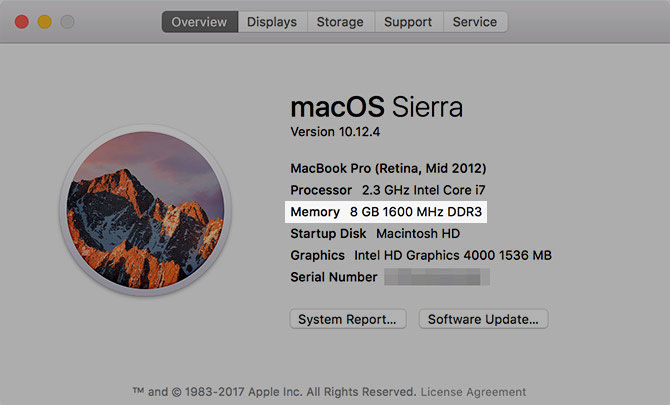
Many Macs have similar looks, so you need to check the exact model of the machine before buying RAM.
Finding models on macOS is very simple. Click the Apple menu in the upper-left corner of the screen and select About this Mac. On the Overview tab , you’ll see the name of your Mac at the top, such as MacBook Pro (15-inch, 2016). Here you also see information about the amount of installed memory.
To avoid confusion, you should also get the device’s model identifier. To do this, click the System Report button, then in the Hardware Overview section, find the Model Identifier such as MacBook7, 1.
Please save this information to buy RAM.
How to buy the right RAM for your Mac
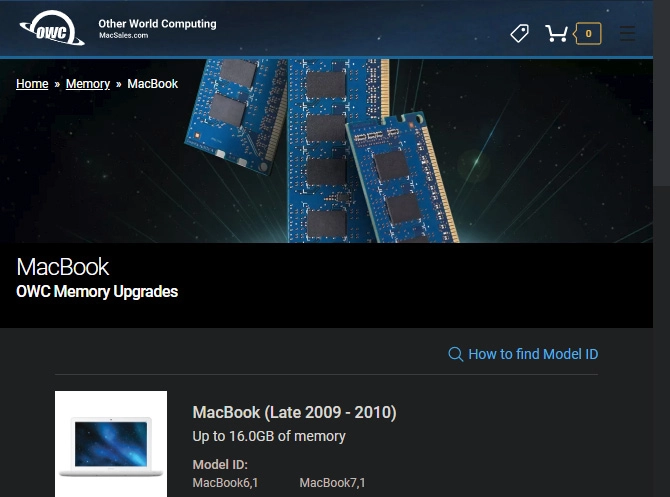
Because there are many models of RAM, this article cannot provide exact details of RAM for each model. However, you can find a bunch of websites that help you find the right RAM for your model.
The first website to visit is the Mac RAM page of Other World Computing. Here you can select your Mac model to find compatible RAM. You’ll see the types of Macs with their respective RAMs. There is also a video on how to upgrade RAM.
https://eshop.macsales.com/shop/apple/memory/Another site you might consider is Crucial’s Mac memory hub. Here, you can enter computer information (found above) or download a scan tool to check. The results show usable SSDs and RAM on your Mac.
https://www.crucial.com/usa/en/apple-memoryGuaranteed RAM compatibility
When buying RAM, system compatibility is very important. Not every type of RAM will work on every Mac, so it’s important to make sure you buy the right components. Otherwise, your computer will be unusable.
This is why you should buy from a store that specializes in Mac RAM upgrades, avoiding cheap RAMs with few or poor reviews.
Finally, you need to buy the right amount of RAM for your system. See OWC’s MaxRAM page above for how much RAM a specific computer takes up. In many cases, this capacity may exceed the maximum Apple-provided limit.
This page also provides the number of computer memory slots. Most MacBook models have two memory slots. To take advantage of dual channel memory, you should buy two sticks of RAM with the total amount you want. For example, if you want to upgrade to 8GB of RAM, you should buy two 4GB sticks.
The amount of RAM to buy depends on your needs. 8GB is a moderate amount of space if you don’t need to do heavy tasks. If multitasking and your computer supports it, upgrade to 16GB.
How to upgrade RAM on MacBook Pro or MacBook Air
Here’s the general procedure for upgrading your Mac’s RAM. As mentioned, this article cannot provide detailed instructions for each Mac model.
This is just a basic overview of the look and feel of MacBooks from mid-2010. While it may look slightly different from your Mac, the basic process is the same. Most iMac models have a convenient window for accessing the RAM compartment, making it even easier on laptops.
While doing so be careful with electrostatic discharge, which can damage computer components. Be sure to ground a metal object before starting the process and do so on a static-free surface. Do not wear clothes that cause static electricity and stretch your legs on the carpet while performing the upgrade.
When handling the RAM, make sure to grab it on the sides so as not to touch any sensitive parts. Avoid handling RAM with pins with gold connections.
Step 1. Remove the MacBook Cover
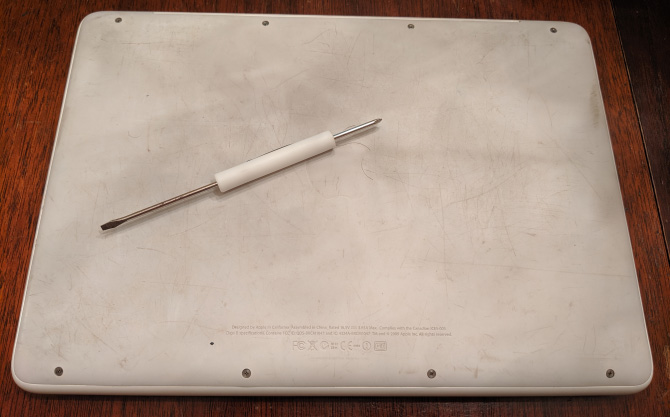
First, turn off your computer if you haven’t already. Next, unplug your Mac from the power source, removing all connected accessories. Turn the MacBook upside down and you’ll see some screws, remove them with a standard Phillips head screwdriver.
When removing, you should leave the screws in a careful place like in a paper towel or lid or something to prevent them from falling because they are quite small.
Step 2: Remove old RAM
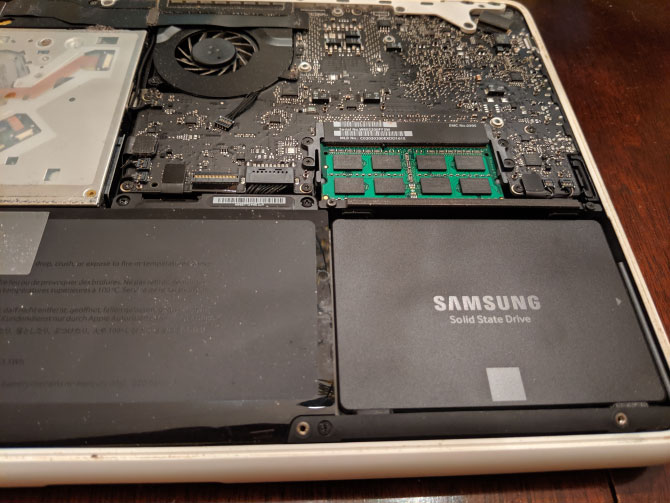
When you remove the cover, you’ll see the RAM right away because the MacBook doesn’t have many removable parts. In the image above, the RAM is the green component, above the Samsung drive.
With this MacBook, you’ll find there are two small clips on either side of the RAM to hold it in place. You need to gently push these clips to the outside of the RAM and flip up to pull it out.
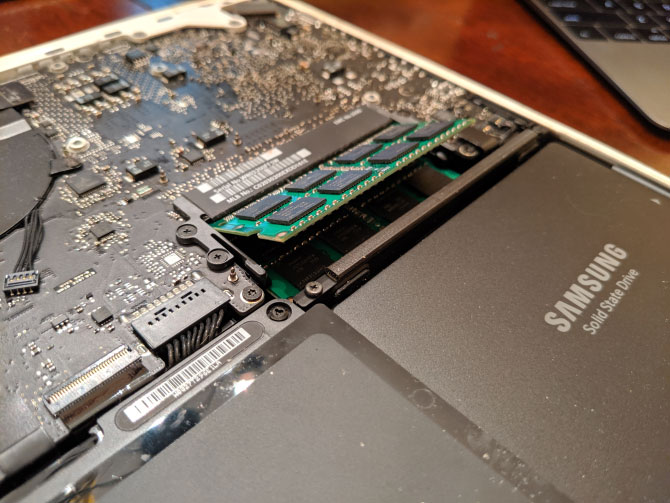
Repeat the above process for the second RAM, then set this old RAM aside.
Step 3: Install a new RAM
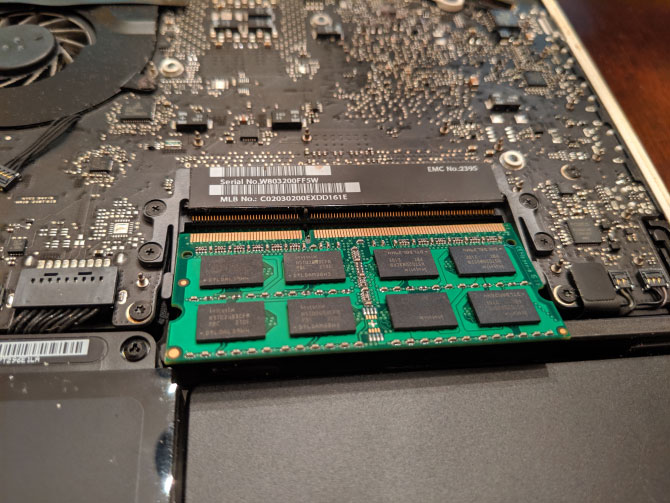
Take the new RAM, arrange the notch in the pins that connect properly with the notch in the RAM compartment. It only mounts in one direction, so it shouldn’t be difficult to get it right.
After stacking the notch at about a 30-degree angle and gently press down on the RAM, you should feel it in place. Repeat the above process for the second bar.
Once the new RAM is securely in place, you need to reinsert the cover. However, while the computer is disassembled, it is recommended that you take a minute to clean any visible dirt with a cotton swab or bottled gas to remove dirt especially at the fan.
Then, snap the cover back into place and screw the screw back on.
Step 4: Confirm your Mac receives RAM
Start the computer to make sure it receives the correct RAM. In the About This Mac window, you’ll see a new amount of RAM next to Memory. To see more information, you can open System Report and click on the Memory tab.
You are done with the RAM upgrade on your Mac.
Wishing you success!


